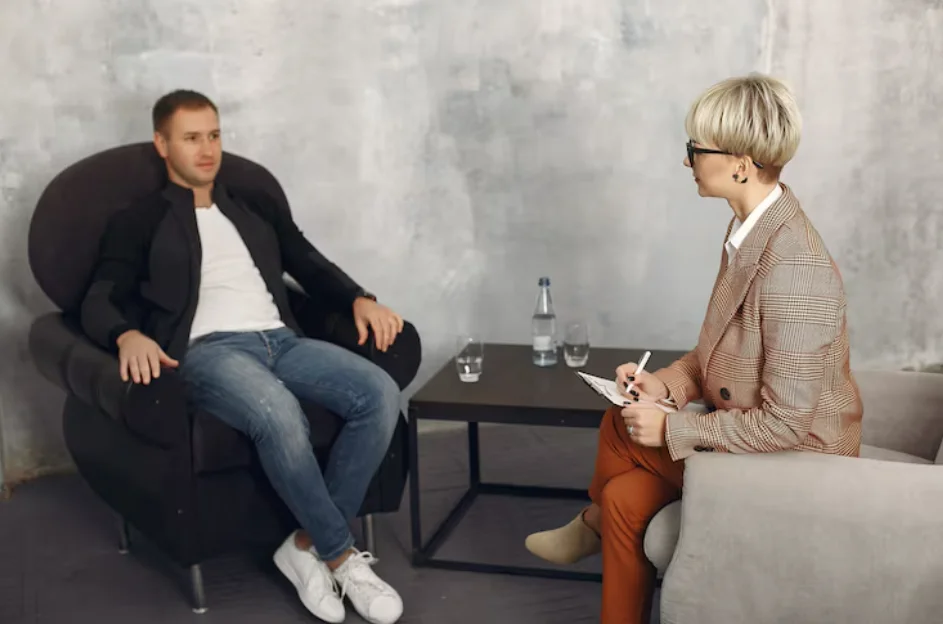Recognizing depression in teenagers can be challenging since adolescence naturally brings mood fluctuations, identity exploration, and emotional intensity. However, depression goes beyond typical teenage angst and can have serious consequences if left untreated. This article helps parents and caregivers identify signs of depression in teens, providing practical tips for recognizing symptoms early so you can get your child the help they need.
Depression can manifest in different ways in teens compared to adults. While adults with depression typically show persistent sadness, teens might display more irritability, anger, or physical complaints. Understanding these variations helps you distinguish between normal adolescent development and a mental health condition that requires intervention.
Identifying the Early Signs of Depression in Teens
Emotional Symptoms of Depression
Early signs of depression in teens often appear in their emotional state before other symptoms become apparent. Persistent sadness lasting more than two weeks is a red flag, but in teenagers, this might manifest as irritability or anger rather than obvious tearfulness.
Your teen might seem emotionally numb, describing feelings of emptiness or disconnection. They may express hopelessness about the future, making statements like “nothing matters” or “things will never get better.” Heightened sensitivity to criticism or rejection often accompanies teen depression.
Behavioral Symptoms of Depression
Behavioral changes represent some of the most noticeable signs of depression in teens. Social withdrawal is common—your once-social teenager might start declining invitations and spending most of their time alone in their room.
Academic performance often declines. Grades drop, homework goes unfinished, and concentration problems make it hard to focus. Teachers might report that your teen seems distracted or disengaged.
Risk-taking behaviors can increase as depressed teens try to feel something or escape emotional pain. This might include substance use, reckless driving, or other dangerous activities. Some teens express depression through aggression or defiant behavior.
Physical Symptoms of Depression in Teens
Depression affects the body as well as the mind. Sleep disturbances are common—your teen might sleep excessively (12+ hours daily) or struggle with insomnia. Changes in appetite and weight occur frequently.
Unexplained physical complaints like headaches, stomachaches, or general body aches often bring depressed teens to the doctor. When medical tests reveal no physical cause, depression should be considered. Low energy and constant fatigue are also characteristic.

Common Signs and Symptoms of Depression in Teens
Changes in Mood and Temperament
The signs and symptoms of depression in teens frequently involve mood changes that go beyond regular teenage ups and downs. Persistent irritability, angry outbursts over minor frustrations, and low tolerance for others signal potential depression.
Your teen might cry easily or frequently without clear triggers. Alternatively, they might seem emotionally flat, showing little reaction to events that would usually elicit strong feelings. Excessive worry or anxiety often accompanies depression in teenagers.
Loss of Interest in Activities
One of the most evident signs of depression in teens is losing interest in activities they previously enjoyed. Your teenager who loved soccer might quit the team. The one who spent hours drawing might abandon their sketchbook.
This symptom—called anhedonia—represents the brain’s diminished capacity to experience pleasure. Pay attention if your teen stops caring about their appearance, no longer maintains friendships, or shows indifference toward achievements.
Self-Criticism and Low Self-Esteem
Depressed teens often develop harshly negative views of themselves. They might call themselves stupid, worthless, or a burden. This self-criticism goes beyond everyday insecurity.
Some teens express feeling they’re “a failure” despite objective evidence of success. They dismiss accomplishments and believe they disappoint everyone. In severe cases, this negative self-perception leads to thoughts of death or suicide, which requires immediate professional intervention.
Recognizing the Differences Between Teenage Mood Swings and Depression
Teenage Mood Swings vs. Depression
Normal teenage mood swings typically respond to circumstances. Depression creates a pervasive low mood that doesn’t lift regardless of circumstances.
Duration matters too. Mood swings last hours or days. Signs of depression in teens persist for weeks or months. If your teenager’s low mood continues for more than two weeks, depression becomes more likely.
Functioning provides another clue. Moody teens still attend school and maintain friendships. Depressed teens withdraw, struggle to meet fundamental responsibilities, and lose interest in everything.
When to Worry About Panic Attacks
Some depressed teens also experience panic attacks—sudden episodes of intense fear with physical symptoms. If your teen experiences recurring panic attacks along with other signs of depression in young teens, both conditions need treatment.
The Importance of Early Intervention in Teen Depression
Early intervention dramatically improves outcomes for depressed teenagers. The more prolonged depression continues untreated, the more it interferes with normal adolescent development. Academic struggles, social isolation, and negative thought patterns become entrenched.
Untreated teen depression increases risks for substance abuse and raises the likelihood of depression continuing into adulthood. Most seriously, depression is the primary risk factor for teen suicide.
Recognizing signs of depression in teens and getting treatment quickly can literally save lives.
Treatment Options for Depression in Teens
Therapy and Counseling
Evidence-based therapy represents the first-line treatment for mild to moderate teen depression. Cognitive Behavioral Therapy (CBT) helps teenagers identify negative thought patterns and develop healthier ways of thinking.
Therapy provides teens with coping skills they’ll use throughout life. It creates a safe space to express feelings and helps them understand that depression is treatable. Family therapy can be beneficial when family dynamics contribute to depression.
Medication for Teen Depression
For moderate to severe depression, antidepressant medication combined with therapy produces better outcomes than either treatment alone. SSRIs are typically prescribed for teens, with fluoxetine being FDA-approved for pediatric depression.
Medication requires careful monitoring, especially in the first few months. Regular check-ins with the prescribing doctor ensure any concerning changes are caught early. Don’t let medication stigma prevent your teen from getting needed treatment—antidepressants correct chemical imbalances in the brain.
Non-Medication Approaches
Lifestyle modifications support mental health alongside professional treatment:
- Exercise: At least 30 minutes of physical activity most days significantly reduces depression symptoms
- Sleep: 8-10 hours nightly is necessary for emotional regulation
- Nutrition: A diet rich in whole foods and omega-3 fatty acids supports brain health
- Social connection: Reducing social media and increasing face-to-face interaction helps
- Creative outlets: Mindfulness practices, journaling, and creative activities provide healthy ways to process emotions

TMS Therapy for Treatment-Resistant Depression in Teens
For teenagers who don’t respond to medication and therapy, Transcranial Magnetic Stimulation (TMS) offers hope. TMS is FDA-approved for adolescents aged 15 and older with treatment-resistant depression.
This non-invasive treatment uses magnetic pulses to stimulate underactive brain regions. Sessions last about 20 minutes and occur daily for 4-6 weeks. Unlike medication, TMS produces minimal side effects.
Research shows that approximately 50-60% of teens with treatment-resistant depression improve significantly with TMS.
Recognizing and Responding to Teen Depression
The signs of depression in teens include persistent sadness or irritability, loss of interest in activities, social withdrawal, sleep and appetite changes, declining grades, physical complaints, and negative self-talk.
These symptoms persist for weeks or months and interfere with daily functioning in ways that normal teenage mood swings don’t.
If you recognize these signs and symptoms of depression in teens, don’t wait and hope things improve. Start by talking with your teenager in a non-judgmental way, expressing concern without criticism. Make an appointment with their pediatrician, who can rule out medical causes and provide mental health referrals.
